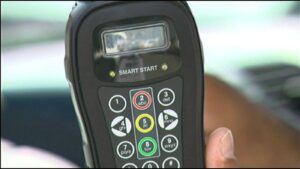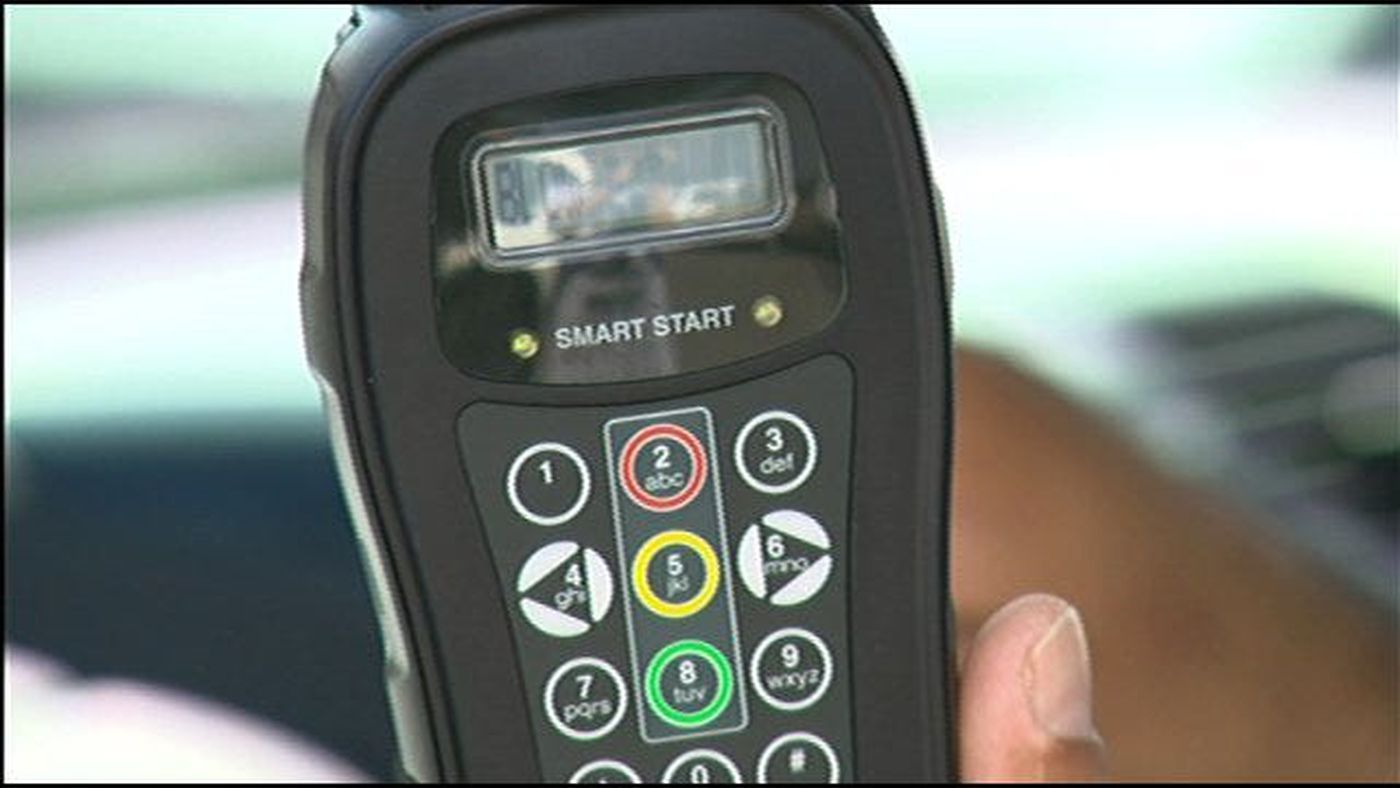
An ignition interlock device is a blood alcohol testing device similar to a breathalyzer that is wired into a vehicle’s ignition system. The device requires a breath sample from the driver in order to start the engine.
On January 1, 2019, California’s new ignition interlock device law took effect state wide. The new law, California Senate Bill No. 1046, allows all drunk driving offenders, even first-time offenders, to install an ignition interlock device following arrest to regain unlimited driving privileges. Specifically, the new law provides first-time DUI offenders who do not cause any injuries can opt for the (6) month ignition interlock program with full driving privileges, or a one (1) year restricted license that allows them to drive to and from work. Second DUI offenders and/or first offenders who injure others are both mandated to use the device for one (1) year. For third-time offenders, the device is mandatory for two (2) years, while fourth or more time offenders must use the device for three (3) years. Marijuana or drug DUI convictions will generally not be eligible to receive an interlock ignition device.
The new law offers incentives to DUI offenders opting to install an ignition interlock device by allowing full driving privileges quickly without a mandatory driver’s license suspension. While it may be costly, installing an ignition interlock device allows drivers to go anywhere they want, as permitted by the terms and conditions of their probation and the State of California Department of Motor Vehicles, as long as the device is installed.
If you find yourself in a predicament and are being charged with a DUI, Dias Law Firm, Inc. can help ensure you get the best outcome suitable for you and your needs. We are an experienced team and well versed in all areas of DUI law. Please contact us today for a consultation and let us help you through this process.
By: Vanessa M. Freitas, Certified Law Student
 For the general public
For the general public: This Blog/Web Site is made available by the law firm publisher, Dias Law Firm, Inc., for educational purposes. It provides general information and a general understanding of the law, but does not provide specific legal advice. By using this site, commenting on posts, or sending inquiries through the site or contact email, you confirm that there is no attorney-client relationship between you and the Blog/Web Site publisher. The Blog/Web Site should not be used as a substitute for competent legal advice from a licensed attorney in your jurisdiction.
For attorneys: This Blog/Web Site is informational in nature and is not a substitute for legal research or a consultation on specific matters pertaining to your clients. Due to the dynamic nature of legal doctrines, what might be accurate one day may be inaccurate the next. As such, the contents of this blog must not be relied upon as a basis for arguments to a court or for your advice to clients without, again, further research or a consultation with our professionals.

 An ignition interlock device is a blood alcohol testing device similar to a breathalyzer that is wired into a vehicle’s ignition system. The device requires a breath sample from the driver in order to start the engine.
On January 1, 2019, California’s new ignition interlock device law took effect state wide. The new law, California Senate Bill No. 1046, allows all drunk driving offenders, even first-time offenders, to install an ignition interlock device following arrest to regain unlimited driving privileges. Specifically, the new law provides first-time DUI offenders who do not cause any injuries can opt for the (6) month ignition interlock program with full driving privileges, or a one (1) year restricted license that allows them to drive to and from work. Second DUI offenders and/or first offenders who injure others are both mandated to use the device for one (1) year. For third-time offenders, the device is mandatory for two (2) years, while fourth or more time offenders must use the device for three (3) years. Marijuana or drug DUI convictions will generally not be eligible to receive an interlock ignition device.
The new law offers incentives to DUI offenders opting to install an ignition interlock device by allowing full driving privileges quickly without a mandatory driver’s license suspension. While it may be costly, installing an ignition interlock device allows drivers to go anywhere they want, as permitted by the terms and conditions of their probation and the State of California Department of Motor Vehicles, as long as the device is installed.
If you find yourself in a predicament and are being charged with a DUI, Dias Law Firm, Inc. can help ensure you get the best outcome suitable for you and your needs. We are an experienced team and well versed in all areas of DUI law. Please contact us today for a consultation and let us help you through this process.
By: Vanessa M. Freitas, Certified Law Student
An ignition interlock device is a blood alcohol testing device similar to a breathalyzer that is wired into a vehicle’s ignition system. The device requires a breath sample from the driver in order to start the engine.
On January 1, 2019, California’s new ignition interlock device law took effect state wide. The new law, California Senate Bill No. 1046, allows all drunk driving offenders, even first-time offenders, to install an ignition interlock device following arrest to regain unlimited driving privileges. Specifically, the new law provides first-time DUI offenders who do not cause any injuries can opt for the (6) month ignition interlock program with full driving privileges, or a one (1) year restricted license that allows them to drive to and from work. Second DUI offenders and/or first offenders who injure others are both mandated to use the device for one (1) year. For third-time offenders, the device is mandatory for two (2) years, while fourth or more time offenders must use the device for three (3) years. Marijuana or drug DUI convictions will generally not be eligible to receive an interlock ignition device.
The new law offers incentives to DUI offenders opting to install an ignition interlock device by allowing full driving privileges quickly without a mandatory driver’s license suspension. While it may be costly, installing an ignition interlock device allows drivers to go anywhere they want, as permitted by the terms and conditions of their probation and the State of California Department of Motor Vehicles, as long as the device is installed.
If you find yourself in a predicament and are being charged with a DUI, Dias Law Firm, Inc. can help ensure you get the best outcome suitable for you and your needs. We are an experienced team and well versed in all areas of DUI law. Please contact us today for a consultation and let us help you through this process.
By: Vanessa M. Freitas, Certified Law Student
 For the general public: This Blog/Web Site is made available by the law firm publisher, Dias Law Firm, Inc., for educational purposes. It provides general information and a general understanding of the law, but does not provide specific legal advice. By using this site, commenting on posts, or sending inquiries through the site or contact email, you confirm that there is no attorney-client relationship between you and the Blog/Web Site publisher. The Blog/Web Site should not be used as a substitute for competent legal advice from a licensed attorney in your jurisdiction.
For attorneys: This Blog/Web Site is informational in nature and is not a substitute for legal research or a consultation on specific matters pertaining to your clients. Due to the dynamic nature of legal doctrines, what might be accurate one day may be inaccurate the next. As such, the contents of this blog must not be relied upon as a basis for arguments to a court or for your advice to clients without, again, further research or a consultation with our professionals.
For the general public: This Blog/Web Site is made available by the law firm publisher, Dias Law Firm, Inc., for educational purposes. It provides general information and a general understanding of the law, but does not provide specific legal advice. By using this site, commenting on posts, or sending inquiries through the site or contact email, you confirm that there is no attorney-client relationship between you and the Blog/Web Site publisher. The Blog/Web Site should not be used as a substitute for competent legal advice from a licensed attorney in your jurisdiction.
For attorneys: This Blog/Web Site is informational in nature and is not a substitute for legal research or a consultation on specific matters pertaining to your clients. Due to the dynamic nature of legal doctrines, what might be accurate one day may be inaccurate the next. As such, the contents of this blog must not be relied upon as a basis for arguments to a court or for your advice to clients without, again, further research or a consultation with our professionals. 
